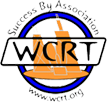
Real Estate Tax Pro Rations in Cook County Real Estate Closings
Real Estate taxes in Cook County, Illinois are always a year behind. Thus, the real estate taxes Cook County property owners pay in 2015 are the 2014 taxes. Because real estate taxes constitute a lien against the real estate, it is customary for real estate taxes to be pro-rated as part of any real estate sale closing, based upon the most recent ascertainable taxes.
Cook County real estate taxes are billed in two installments. To make matters even more complicated, the Cook County Treasurer computes the first installment bill based upon 55% of the bill for the prior year. Thus, the first installment of 2015 taxes is billed based upon the 2014 taxes, with any difference between 2014 and 2015 actual taxes being billed in the second installment.
Because taxes have historically increased over time and Cook County tax billing lagging by a year, it is customary that real estate tax pro rations be based upon an escalation factor. Thus, purchase contracts frequently provide that the tax pro ration will be based upon 105%, 107% or even 110% of the most recent ascertainable taxes, to provide a cushion when the buyer must pay the actual tax bill for the year.
Feel free to contact an Illinois attorney experienced in handling all aspects of real estate closings for both buyers and sellers at Logan Law, LLC, if you have questions about the sale of your Chicago area real estate or any other area of the laws governing the purchase or sale of real estate.
Selling Chicagoland Real Estate – The Attorney Review Paragraph
Commonly available printed form contracts for the purchase and sale of real estate in the Chicago Metropolitan area contain a paragraph which is very useful for both buyers and sellers. The paragraph is commonly referred to as “Attorney Review” or “Attorney Modification”. Under the terms of the paragraph, attorneys for both buyer and seller have a set period of time after the contract is signed by both buyer and seller and initial earnest money is deposited to review the contract and propose changes. The period is usually five to ten business days. This allows the buyer and seller to agree on the basic terms of the deal, such as purchase price, closing date and mortgage contingency, before going to the expense of employing an attorney.
Once the contract is signed, the executed contract is delivered to the attorneys for the buyer and seller. They can then review the contract, confer with their client as to any issues, clauses or wording of concern to them and then propose appropriate changes in the contract to the attorney for the other side. In most cases, proposed changes can be worked out and the contract then proceeds to closing. However, if the parties’ attorneys cannot reach agreement, either attorney can terminate the contract, in which case the initial earnest money is returned and the property put back on the market. As a kind of safety blanket to real estate buyers and sellers allowing them to sign otherwise binding agreements before they hire an attorney, the Illinois courts have held that the attorney may disapprove the contract during the attorney review period for basically any reason.
Feel free to contact an Illinois attorney experienced in handling all aspects of real estate closings for both buyers and sellers at Logan Law, LLC, if you have questions about the sale of your Chicago area real estate or any other area of the laws governing the purchase or sale of real estate.
Real Estate Sellers Must Disclose Known Defects
Sellers of Illinois properties improved with one to four residential dwelling units are required to disclose to buyers any knowledge they have of building defects. The Illinois Real Property Disclosure Act requires sellers to complete, execute and deliver a residential Real Property Disclosure Report before any contract to sell real estate is executed.
The Disclosure Report requires Illinois real estate sellers to disclose any knowledge they have of any building defects, including but not limited to flooding, recurring leakage, defects in basements roofs, foundations, plumbing or electrical problems as well as defects in the heating, ventilation or air conditioning systems. If prior to closing the real estate, the seller becomes aware that the Disclosure Report is in any respect inaccurate, the seller has a duty to supplement the Report in writing.
An Illinois real estate seller is not liable for errors, omissions or inaccuracies in the real estate Disclosure Report if the seller had no knowledge of the inaccuracy, reasonably believed the defect had been corrected or if the inaccuracy was based upon information furnished by a public agency, licensed professional or by a competent contractor which relied upon by the seller.
Feel free to contact an Illinois attorney experienced in handling all aspects of representing real estate sellers in Chicago area real estate closings at Logan Law, LLC, if you have questions about sale of your Chicago area real estate or any other area of the laws governing the purchase or sale of real estate.








